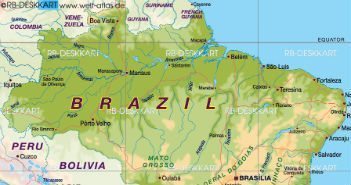América Móvil finished the first quarter with revenues up 1.3% year-on-year to $14.93 billion, pushed by growth in Brazil. The carrier’s Brazilian unit posted an 8.5% increase in total with wireless revenues rising 5.7% and fixed revenues increasing 11%. As for customers, América Móvil counted 342.9 million accesses, 4.5% more than in the same period of 2012. Of the total, 272.2 million were wireless subscribers.
América Móvil is facing a difficult time in Mexico, where the telecommunications and broadcasting regulator has determined that both of the company’s subsidiaries, Telcel and Telmex, to be preponderant economic agents. 
In its first quarter statement, América Móvil noted that while economic activity continued to improve marginally in much of the developed world, it decelerated somewhat in many developing countries, particularly those more dependent on commodity prices—and those with trade links to China.
TIM small cells contract—The Brazilian unit of Telecom Italia, TIM, is partnering with Huawei to deploy small cells in its 3G network. TIM will use the Huawei Micro BTS solution, making it the first operator in South America to adopt the solution. “Our priority is to focus throughout 2014 on the use of small cells in the 3G network, and also on extending them to the 4G network,” said Marco Di Costanzo, TIM’s mobile network director, in a statement.
TIM tested small cells in 2013 in Rio de Janeiro and São Paulo, both indoors as outdoors. TIM plans to implement thousands of small cells nationwide by 2016. “It is part of the company’s strategy to increasingly invest in this type of technology to improve coverage and support the growth of voice and data traffic,” Costanzo said.
Argentina’s telecom investments—Major telecommunications providers will invest about $737.5 million this year, according to a report by Argentina’s communications secretary. Telefónica Movistar is set to invest $313.6 million, mostly focused on improving and expanding services. Claro is expected to invest $157.5 million, and Telecom-Personal is reportedly investing $269.5 million, according to the report.
Bolivia’s Entel expands LTE—Bolivian-state operator Entel has deployed more than 2,000 residential LTE lines in the first week of April, according to local reports, citing Entel CEO Oscar Coca. Launched April 1, Entel’s LTE network will be available initially in large cities such as La Paz, El Alto, Santa Cruz and Cochabamba, then gradually expanded across the country. Entel also announced plans to invest more than $12 million to develop its network and expand services in the department of Tarija.
Millicom revenues and DTH launch—Millicom, which operates under the brand Tigo in Latin America, reported revenues of $1.405 billion for the first quarter of 2014, growing 8.5% proforma in local currency. Hans-Holger Albrecht, president and CEO of Millicom International Cellular, said in a statement that the first quarter results demonstrate that the company is delivering on its growth strategy in all regions and that investment in this growth is having the expected impact on Millicom’s margin.
Millicom also announced its first direct-to-home satellite TV service in Bolivia. The DTH service from Tigo Bolivia coincides with the launch of its cable service in the country following the acquisition of the fixed-line company Multivision in 2013.
More news from the Latin American region:
- The Costa Rican government decided to suspend this year’s spectrum auction. The government had planned to bid 40 megahertz in the 1.8 GHz band and 30 megahertz in the 1.9 GHz and 2.1 GHz bands
- Entel plans to invest $2.8 billion between 2014 and 2016 to expand its operations in Chile and Peru. The major part of the investment will be in new projects in Chile (about $2.1 billion). In Peru, the telco is considering an investment of $200 million to $250 million per year.
- Telefónica Vivo announced that its LTE coverage has been deployed in 86 cities in Brazil, reaching 63.5 million people. Vivo leads the LTE market in Brazil with a 41.3% share. The company also made announcements in the machine-to-machine field, including the launch of fleet management services in partnership with Sascar.
- Havana Times reported that the Cuban state-owned telecommunications company ETECSA is facing a crisis because the company miscalculated the demand for e-mail service on mobile phones, which have been available since March 3. The data transfers are consuming too many network resources, and base stations are over-saturated.
Wondering what’s going on in Latin America? Why don’t you follow me on Twitter? Also check out all of RCR Wireless News’ Latin American content.

